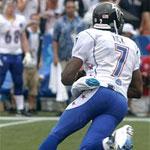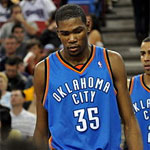Which qualities does a sports agent need to make it in this business? This career demands a love for a chosen sport, the ability to understand legalities, the willingness to stick with athletes through ups and downs during an often short career, and to be able to negotiate contracts, handle financial planning, and support an athlete through sponsorships. While it takes some time to build trust, a quality roster of clients, and a stellar career path, you may learn from examples shown here that passion and drive can land you in the top tier of great sports agents within a few short years. In other cases, building a landmark career can take decades.
 The ability to establish a relationship with a client is, perhaps, one of the most important qualities a sports agent can have. You don’t need to like your client, but you need to be available for a variety of needs. One example of one long-term relationship includes the one between major baseball player, Derek Jeter, and agent Casey Close. Close met Jeter in 1993, and they’ve been inseparable since.
The ability to establish a relationship with a client is, perhaps, one of the most important qualities a sports agent can have. You don’t need to like your client, but you need to be available for a variety of needs. One example of one long-term relationship includes the one between major baseball player, Derek Jeter, and agent Casey Close. Close met Jeter in 1993, and they’ve been inseparable since.- Honesty, or personal integrity, is right up there with the ability to establish relationships. Sports agents are required by law in most states to make certain disclosures regarding their business to the secretary of state’s office before they can practice as agents. Top agents, such as Mark Steinberg, emphasize this quality as a way to establish trust with athletes and anyone else you may deal with.
- The ability to network and talk with other professionals in your sport is imperative. You may not be the NCAA Scholar Athlete of the Year, as Rob Pelinka was in 1993, but being in sports can help you stay on top of current trends and information that may affect decisions that you recommend to the athlete. Pelinka is best known for his long-term agent relationship with Kobe Bryant.
- Planning skills are required to deal with opportunity and inopportune moments. Reaching a clear goal is imperative between agent and client, as without that goal, nothing would be achieved.
- The ability to negotiate contracts is valuable, too, because you want to work in the athlete’s best interest. The ability to obtain a better salary, make provisions for injuries, and provide options for salary increases is great for you and for the athlete, especially if you show the ability to obtain long-term benefits rather than short-term options like Bill Duffy does for more than 35 NBA players.
- Gain an ability to talk to the press and use strategy. Dan Fegan began to build tremendous interest in Orlando Magic basketball player, Dwight Howard, in 2011. The press still is talking about Howard’s moves, especially rumors about becoming a free agent. Fegan put his client in the spotlight, and he’s not through yet.
- Knowledge about investments, business management, financial and risk analysis is important, because it can help you make those long-term contract decisions. You can learn from pros such as Darren Adam Heitner, Esq., a sports agent who has penned many publications that can help you succeed, too.
 Gain a stellar reputation, as this is what will attract the star athletes to your corner. Word of mouth gets around quickly, and good agents come highly recommended. If you can match athletes to the right team with the best package, you’re already on top of the game. Take a look at Arn Tellem‘s roster to understand the clout this brings to an agent’s reputation.
Gain a stellar reputation, as this is what will attract the star athletes to your corner. Word of mouth gets around quickly, and good agents come highly recommended. If you can match athletes to the right team with the best package, you’re already on top of the game. Take a look at Arn Tellem‘s roster to understand the clout this brings to an agent’s reputation.- If you want to gain attention through controversy, you can; but, be sure that you aren’t hurting your athlete or a team by pushing for too much too soon. Scott Boras backed down eventually, when he realized that signing a high-dollar athlete for a long period of time can hurt a small team if that athlete becomes injured.
- Know the law. Many top agents, including former football player turned football agent extraordinaire Tom Condon, followed his father’s advice and went to law school as his football career was waning. Condon is known for his tough negotiating skills.
- If you love working under pressure, the ability to handle stress is a great attribute for any sports agent. Just ask Joel Segal, who managed to negotiate contracts for about 20 players worth a total of $150 million in compensation in about one week after the NFL lockout shut down all league business for months. He also manages Michael Vick, and that’s a lot of pressure in and of itself.
- Know your market (and your game). Fernando Cuza spent three years in the Dominican Republic during baseball season to learn the culture and to befriend players and families. As a result, he’s become known as the expert in the Latino baseball market.
- The ability to provide sponsorship opportunities also is valuable to any athlete. Professional careers in most sports are short, and an athlete must be able to count on you to make as much money as possible. Athletes such as NFL star Victor Cruz know about sponsorship values, which is why he signed with IMG Talent in February to support his off field business endeavors.
- While this quality is something that may turn you off, every great sports agent must have the ability to perceive and exploit power. This attribute isn’t as ugly as you might think — especially if you apply this ability to Jerry Maguire, who said in the 1996 Hollywood movie, “I will not rest until I have you holding a Coke, wearing your own shoe, playing a Sega game featuring you while singing your own song in a new commercial starring you, broadcast during the Super Bowl in a game that you are winning. And I will not sleep until that happens. I’ll give you fifteen minutes to call me back.”
 The ability to accept disappointment can go a long way in this business. When a long-term relationship ends with a star athlete (such as Kevin Durant splitting from Aaron Goodwin), or when an athlete gets in trouble (such as the legal incident regarding Roberto Hernandez and his supportive agent Jorge Brito), agents must use all the above qualities to handle difficulties.
The ability to accept disappointment can go a long way in this business. When a long-term relationship ends with a star athlete (such as Kevin Durant splitting from Aaron Goodwin), or when an athlete gets in trouble (such as the legal incident regarding Roberto Hernandez and his supportive agent Jorge Brito), agents must use all the above qualities to handle difficulties.- If you have all the above attributes, you may have a feeling of self-worth. This quality is necessary in a career that requires agents to know more than many other people in other careers — including a sport, finances, law, and how to handle personal client-agent relationships. But, there are ways to build that confidence…just ask Leigh Steinberg, owner of Leigh Steinberg Enterprise, who set the standard for athlete marketing and positioning, among other highly successful endeavors.
